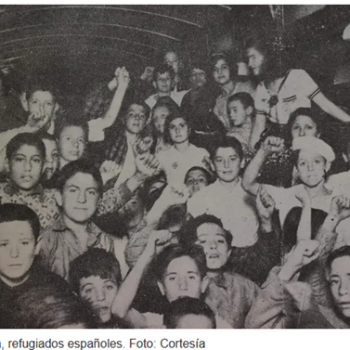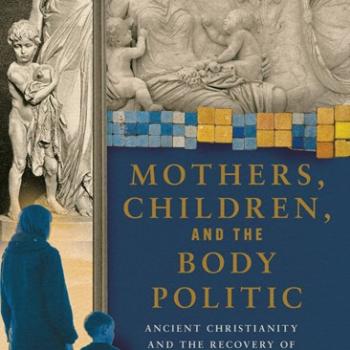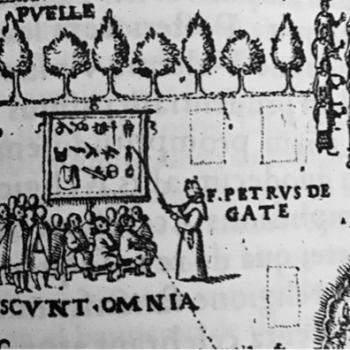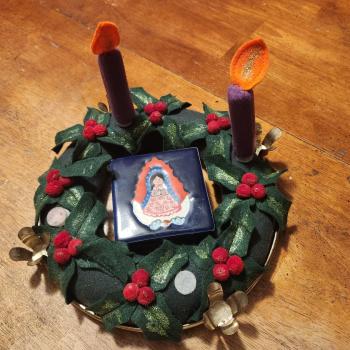Every Sunday morning in the small-town Georgia PCA church where my husband and I have been members now for almost seven years, if you were to take a stroll down the hallway in the children’s ministry wing, you might see something that is not typical in most churches of any denomination: you will spot at least one man in the nursery, rocking a baby or reading a book to a toddler. Several more men are distributed among the children’s Sunday School classes (held in the hour before worship) and Children’s Church (the classes to which younger kids are dismissed during the nearly hour-long sermon). One of the men on childcare rotation or children’s teaching duty any given Sunday might even be the associate pastor or, at least, one of the elders.
It has not always been that way. A few years ago, after much discussion and prayerful consideration of the impact of yet another baby boom in the church on the childcare rotation, the elders accepted a revolutionary proposal from the children’s ministry coordinators: what if every single able-bodied adult in the church became part of the nursery and children’s classes rotation? And so, the system known affectionately as “the draft,” was born.
Overnight, upon the implementation of the draft, the number of people in these service rotations doubled. Ever since, the larger pool of volunteers in the nursery and Sunday School rotation has meant that what used to be a burden disproportionately falling on moms and, generally, the women in the church, is now shared by all adults.
Is everyone thrilled to be serving in this way? Well, as with any draft, some would rather get exempted—although no one has tried shooting off a toe or hacking off a thumb for the purpose, so clearly it hasn’t been that bad. The pandemic had removed all people over the age of sixty-five from the draft for a time, but many are back now. Back surgery—and the corresponding inability to pick up small children—has earned another few exemptions. But otherwise, we’re all in it together.
The need and efficiency of the draft in allowing us as a church to serve together in a key ministry that, yes, also happens to be thoroughly exhausting, is a good reminder that sometimes in church, as in life, you just need to serve. True, we all have our own unique God-given giftings. But sometimes the most important thing you can do at church is not what you feel best qualified to do, but what is most needed at the moment. And for churches like mine, the nursery and children’s Sunday School classes always need more hands on deck. Always.
Mind you, we don’t overlook the importance of spiritual gifts either, but it gets complicated. For years now, the church has periodically offered a class on spiritual gifts, encouraging those who take it to discern not just their giftings in general (although this is important), but specifically where they would be best suited to serve in the church. The pastor has noted on one occasion that funnily enough, the class always yields at least someone who will join the worship team, the welcome team, maybe the wonderful coffee-making team, or the sound booth. Very few, however, conclude this class eagerly proclaiming that their main gift and calling in serving the local church is to volunteer in the nursery and children’s Sunday School.
Don’t get me wrong. The wonderful coffee makers are the heroes of every Sunday morning. And yet, in a church packed full of energetic kids and sleep-deprived parents, it is a blessing to have a nursery rotation that requires people to serve only once every two months or so. If the draft is what it took—well, as a sleep-deprived mom I say that it was worth it.
But there are more theologically rooted reasons involved here than mere convenience. We regularly make the promise as a church to assist parents as they disciple their children. We emphasize discipleship as a key value for all members. And we believe that teaching God’s Word is important for all ages. The draft feeds directly into these values. It also affirms a theological truth that has been key since the earliest days of the church: we are not mere individuals drifting in this world. We are, put together, a single body—the body of Christ here on earth. As we take turns serving in one of the hardest ministries all together, we affirm this truth in a way that is simple yet beautiful—by reminding children that they matter, but also by reminding parents that they matter, their church cares about them, the church loves them through loving their children. And so, the draft is a fundamentally pro-life act: it is our commitment to life manifested in real life, in real action, not mere words.
I want to acknowledge, nevertheless, two objections I have heard from outsiders to the concept of this draft. First, the most common objection has to do with abuse, and the argument goes along these lines: if you place all members of the congregation in these positions of authority around the vulnerable, there will be more instances of abuse. In response I can say: everyone goes through the background check before they are allowed anywhere near kids. In addition, there are always multiple adults serving together in any one room, because from a practical standpoint, you can’t leave ten toddlers or preschoolers alone with just one person—if you’ve ever been in a room with multiple small children, you understand. And if you don’t understand what I mean here, then you probably need to volunteer for your church nursery rotation stat.
The second objection is perhaps trickier. As one person said to me (and I paraphrase from memory): “I would never join a church that would make me do anything that I did not have a choice to do.” Yes, this is America. We make choices about everything. Except, where does this glorification of choice get us? The term “pro-choice” is a reminder that sometimes the most beautiful thing, one that involves loving other people, is not the one that people choose. But by being in community and communion with a group of people, we have to die to ourselves in these small ways—let’s face it, serving for an hour or two every two months does not exactly a martyr make!
As an ancient historian, I am reminded of the counter-cultural ways in which the members of the early churches chose to live together, serve each other, and sometimes die together too. They did not do this perfectly, and plenty of times they behaved as cultural Christians, rather than beloved children of God, sacrificially loving others around them. But in a Greco-Roman world that did not value people as precious, as worth someone else’s time, energy, and other resources, many early Christians set the counter-cultural model for how to love unconditionally.
A proper theology of personhood involves admitting the preciousness of every human being and then acting upon this reality in myriad ways, big and small. It means affirming the truth of Psalm 127:3, that children are a blessing from God. Our modern world practices the values of the pre-Christian pagan world through repeatedly projecting in various ways the message that children are an inconvenience, a hindrance to your efficiency as a worker and money-making machine. Furthermore, the language of choice applied to children presents yet more reasons to not support families: since it was the parents’ choice to have these loud, resource-consuming kids, well, that was their choice to suffer in this way. They could have simply chosen differently; why should the rest of us pay the price for other people’s difficult choices? Thus whisper—or, at times, loudly proclaim—the lies of this post-Christian society in which we reside here on earth. Sometimes it is even Christians who act as though they believe these lies.
At the same time, however, Christians talk much—and rightly!—about what it means to create and support a culture of life all around us, a culture that affirms the preciousness of children and all humanity unconditionally. But what does it look like to live out these goals day-to-day and, in particular, Sunday-to-Sunday? This commitment to a comprehensive pro-life ethic can begin with serving in such a small yet valuable way as the church nursery rotation.


















